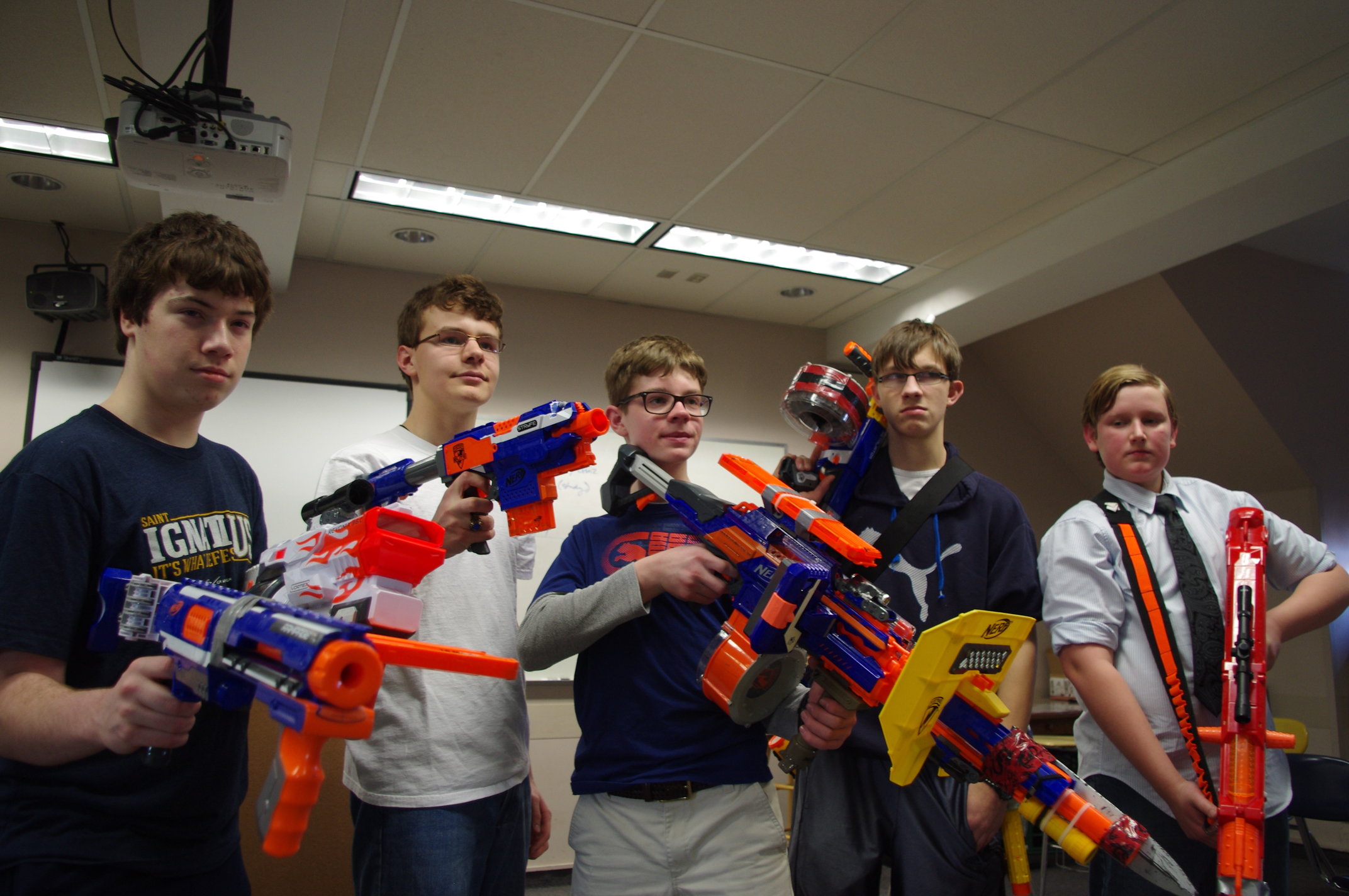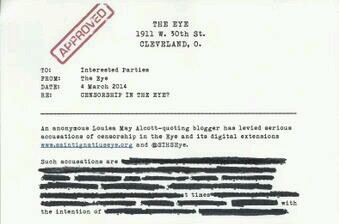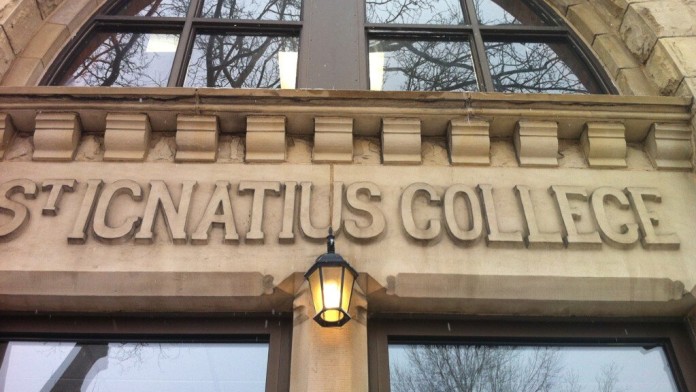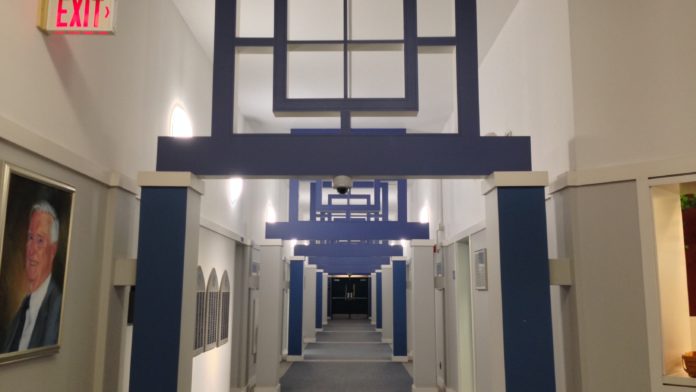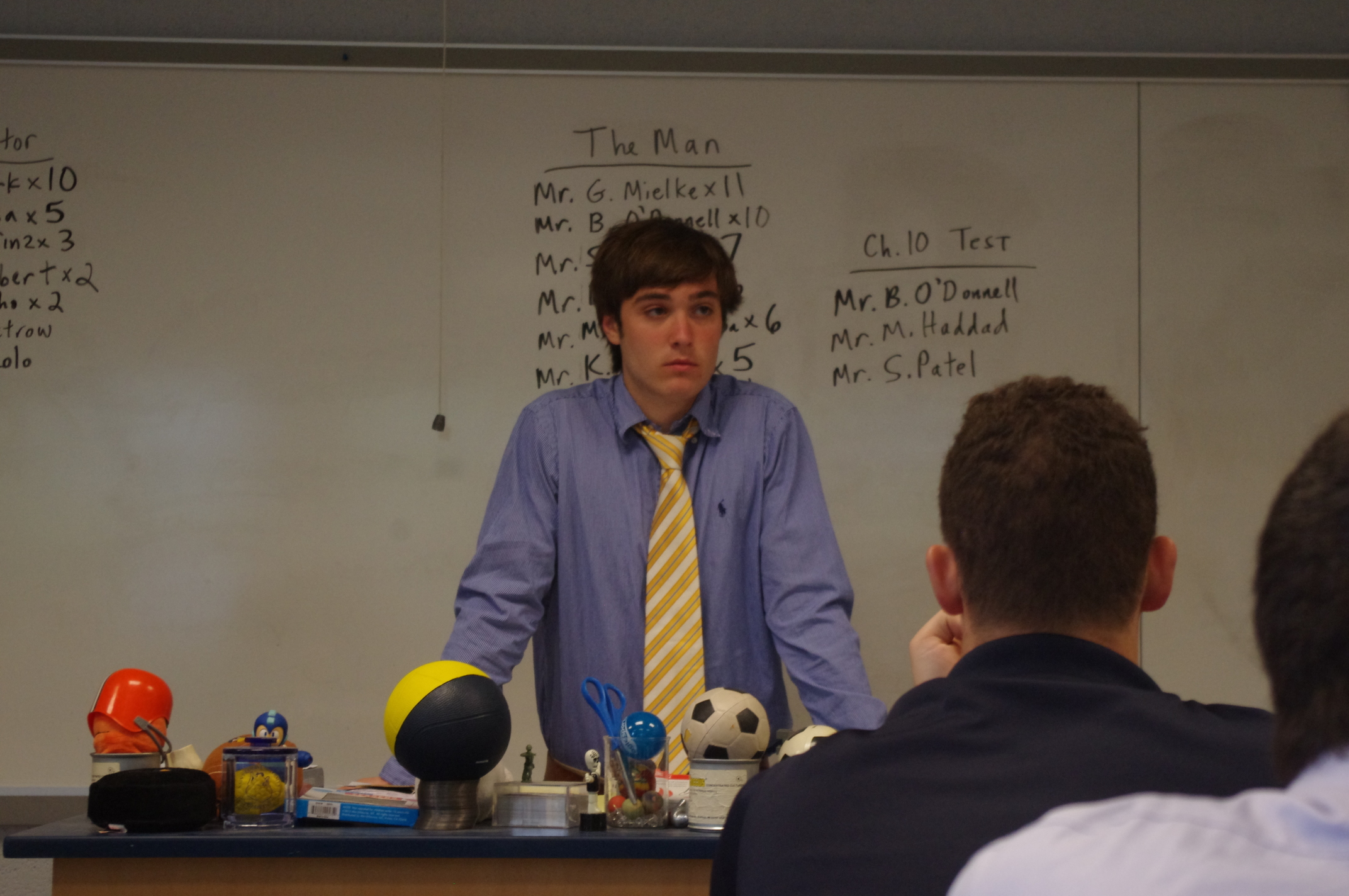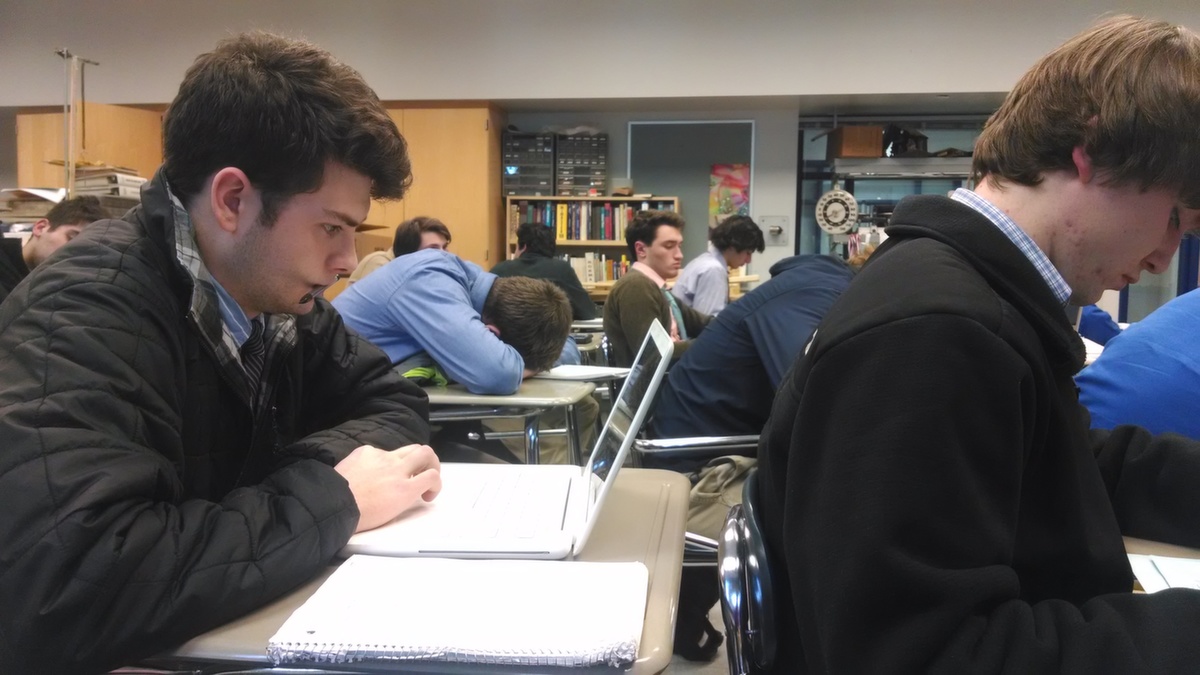by Dominic Gideon ’14
Ambitious, young, and eager to expand his horizons, Matthew Waldeck ‘02 made a leap far from the Ignatius bubble and went 2300 miles away to a tiny liberal arts college in California called Pitzer College. His decision was not sparked by any overwhelming desire to be different, to escape Cleveland, to play college football, or to be able to party in the flashy lights of LA; Mr. Waldeck left to take a leading position in the Entertainment Capital of the World.
His desire to be in show business was likely sparked by the captivating storytelling of his parents, and his lifelong love for movies. Mr. Waldeck doesn’t see a big difference between his parents’ stories and big screen productions. The only distinction, he says, is the medium through which the story is communicated.
“I’ve been an actor, I’ve written, now I’m a producer,” he said. “Really, all it is is storytelling.”
As a child, he remembers spending his weekends endlessly watching narratives unfold through the visual medium. Subconsciously, Mr. Waldeck’s path to a movie career was slowly forming.
The Chagrin Falls native and St. Rita alumnus didn’t have much acting experience in his younger years. In high school the closest he ever came to his current job was making the yearly Spanish class video, which not coincidentally was his favorite time of year.
[pullquote]
“Really, all it is is storytelling.”
[/pullquote]
At Ignatius, he knew he wanted to go into entertainment. “There was some inkling,” he said, explaining that he knew intuitively he was destined for a career in film.
“That’s why I chose Pitzer; I just wanted to get close to LA and I would figure it out from there.”
Mr. Franzinger ’02, one of his classmates, wasn’t surprised Mr. Waldeck got into the entertainment business. He remembered Matt Waldeck as a friendly, funny, and quirky guy noting his hard work ethic, spot on Mr. Hennessy impersonation, and yearly “bowl of red” lunch.
Although Mr. Waldeck felt inclined to pursue acting, he dedicated much of his time in high school to athletics, especially football. At Ignatius, he ran track and was an integral part of the 2001 championship team as the starting safety.
“Football was very important to me, especially the camaraderie,” he said.
Mr. Waldeck also developed some useful traits as an athlete, including self-discipline and relentlessness.
He is convinced his education at Ignatius has been crucial to his later success. During his time at 1911 West 30th, Waldeck says he picked up many great life lessons and grew by having the “complete Ignatius experience,” learning formative truths which help him every day in his profession.
One example that stuck out to him was the personal strength he developed as a result of the competition he found at Saint Ignatius.
“You’re a small fish in a big pond,” Mr. Waldeck said. “The sooner you can figure that out about life, the better, because you’ll understand how hard you have to work.”
Two of the teachers he credits with helping him become who he is today are Mr. Dan Corrigan, his football coach who made him work harder than he thought was possible, and Mr. Beach, his English teacher, who gave him the confidence and skills to write, so important for his job.
Once in college, Mr. Waldeck jumped on all the acting opportunities he could get. He would search the paper trying to find auditions, then drive to LA to try to hook a job. He developed a diverse portfolio including appearances in a K Swiss shoes commercial, and a television pilot with Stan Lee from Marvel Comics.
“I had success immediately which sort of spoiled me, because it was a much different ball game when I got out of college,” he said.
After graduating from Pitzer, Mr. Waldeck spent about four years hopping around from one short acting stint to another. He had roles in several short films, a few TV series, and a movie before he decided to try out producing.
“I kinda got burned out on acting,” he said. “Waiting in the breadline for your next job as an actor is not the easiest way to get stability.”
So he went back to Cleveland to work for Tyler Davidson, an independent film producer who has produced seven films including the highly acclaimed, award winning film Take Shelter, as well as Kings of Summer, a Sundance feature filmed in Northeast Ohio, and his upcoming film The Signal, for which Mr. Waldeck was an associate producer.
“Working for him was instrumental. He taught me how to do it,” Mr. Waldeck said of his apprenticeship with Mr. Davidson.
Now Mr. Waldeck has his own company which produces “horror, thriller, sci-fi films.”
[pullquote]
“You’re only limited by your own creativity.”
[/pullquote]
Most moviegoers know very little about the job requirements of a producer. Mr. Waldeck says the process is complicated and involves a surprisingly large number of people of the course of the process.
It all starts with someone bringing an idea to a movie company. Some producers begin working with the concept and do what is known as “development.”
“Next you would have to pay a screenwriter or writer director to write a script in hopes of attracting an actor, then that starts to become a package,” he described.
“Then you get a line producer, which is like an accountant. You come up with a budget of how much you can make the movie for. Then they’ll come to a guy like me who I’m a creative producer and also a financier,” he said. “They say we need $3.5 million for this movie. I raise that money and oversee the production to protect my investor’s money. So it’d be a co-production.”
Mr. Waldeck loves what he does.
“It’s a really cool job that I didn’t even know of until later in my career because it’s problem solving and it’s also very creative,” he said. “You’re only limited by your own creativity.”
One aspect he doesn’t like is the distance.
“It took 11 years to get where I am, and I want to get to the point where I don’t need to be in Los Angeles to have motion pictures. I think it would be fantastic, a great source of pride for the city,” Mr. Waldeck said.
“I love Cleveland, it’s a great city. And I think it’s kind of a blank canvas right now and it’s an exciting time to be here.”
He eventually wants to get a movie studio built in Cleveland.
“Albuquerque, Georgia, Bloomington, and Vancouver all have big film markets,” he stated. “I don’t see why Cleveland shouldn’t.”
One potential factor in helping expand the Cleveland film market is the Ohio motion picture tax incentive, in which the state gives 25% of the the movie production’s costs back to the film makers.
This incentive was the basis behind the decision by the makers of the movie Draft Day to switch from the Buffalo Bills to the Browns.
Mr. Waldeck also wants to give Ignatius students more film opportunities by working with Alumni Director Mr. Dan Malone to create a group called the “Industry Cats.”
“The goal will be to integrate you men so you don’t have to go 3000 miles away,” he said. “There’s a lotta lawyers and doctors at Ignatius, and their networks are very powerful and very helpful. I don’t see why we shouldn’t have an equally powerful and helpful network in the entertainment business.”



